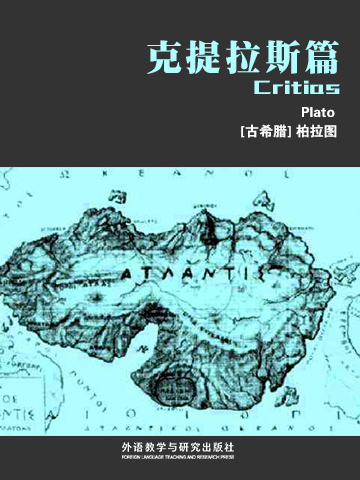"Critias" utilize a few select men to theorize on the natural world and to tell a story of the lost city of Atlantis. This dialogue tells the tale of the powerful island kingdom of Atlantis. Though the people are the offspring of a god, their human nature begins to corrupt them. They attempt to conquer Athens but fail because of the Athenians' well-ordered society. Just as Zeus begins to decree their punishment, however, the incomplete work comes to an end. Though not extant, this pair of dialogues is clearly the writing of a brilliant mind posing and considering creative ideas.
《克提拉斯篇》属于柏拉图晚期的作品,讲述关于亚特兰蒂斯王国(传说沉没于大西洋的岛屿)的故事。
Critias, one of Plato's late dialogues, contains the story of the mighty island kingdom Atlantis and its attempt to conquer Athens, which failed due to the ordered society of the Athenians. Critias is the second of a projected trilogy of dialogues, preceded by Timaeus and followed by Hermocrates. The latter was possibly never written and Critias was left incomplete. Because of their resemblance (e.g. in terms of persons appearing), modern classicists occasionally combine both Timaeus and Critias as Timaeus-Critias.
- INTRODUCTION AND ANALYSIS.
- CRITIAS.
- 书评 写书评
- 笔记
-
书评加载中...













 京公网安备 11010802032529号
京公网安备 11010802032529号
笔记加载中...